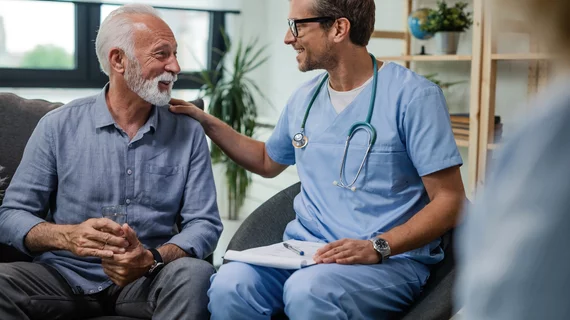Many cardiac surgery patients do not need opioids when they leave the hospital
Many cardiac surgery patients can be discharged without the need for opioid medications, according to a new study published in The Annals of Thoracic Surgery.
“In some cases, patients assume that after surgery, especially a big operation like cardiac surgery, that they will need to go home with prescription pain medicine,” Catherine M. Wagner, MD, from the University of Michigan in Ann Arbor, said in a press release. “This study shows that discharge without opioid pain medicine after cardiac surgery is extremely well tolerated by some patients. In other words, we should not be reflexively prescribing pain medicine to people after surgery just in case they need it.”
Wagner et al. reviewed data from 2019 for patients who had coronary artery bypass grafting (CABG) or another significant heart procedure at one of 10 participating facilities from the Michigan Society of Thoracic and Cardiovascular Surgeons Quality Collaborative.
The authors found that 28% of patients did not receive an opioid prescription when they were discharged.
Patients who were older, hospitalized for a longer period of time after their surgery or were discharged during the last three months of the study period (October to December) were more likely than to go home without being given an opioid prescription.
On the other hand, patients who had a history of depression or received opioids on the day prior to discharge were more likely to receive an opioid prescription after discharge. This was also true for patients who were not Black or white.
In the study, patients who were discharged without an opioid prescription generally did not experience any issues related to that decision. In fact, less than 2% of those patients later needed a prescription after their discharge or before their 30-day follow-up appointment.
“This study’s findings should provide patients with reassurance that postoperative pain can be managed with non-opioid pain medications at home,” Wagner added.
The authors also noted that, among the 909 patients who did not take opioids on the day before discharge, 46% were still given an opioid prescription after discharge.
“One should consider if these opioid prescriptions were truly necessary for patient pain relief,” Wagner said.
In the press release, researchers said that they plan to focus on guaranteeing that only patients who really need opioids are sent home with a prescription, while also removing “just in case” prescriptions that put unnecessary opioids in communities and place patients and their families at risk from opioid diversion.
“It is important to balance excellent pain control while limiting unnecessary opioids,” Wagner said. “We are still learning how to best find this balance for our patients and recommend that patients always work closely with their physicians/provider teams to decide what is best for them.”
“For decades, surgeons have unwittingly but substantially contributed to the opioid epidemic,” Thomas E. MacGillivray, MD, a specialist from Houston Methodist in Texas who was not involved in the research, said in the same statement. “No one wants any patient to be discharged home after surgery without adequate pain relief. With the best intentions to help relieve pain and alleviate anxiety about pain, discharge practices have frequently erred on the side of prescribing too many rather than too few narcotic pain pills. We have learned that many of the unused, unneeded narcotics end up in the community. This very important study will help surgeons identify patients who may comfortably be discharged home without narcotics.”
Read the full study here.
